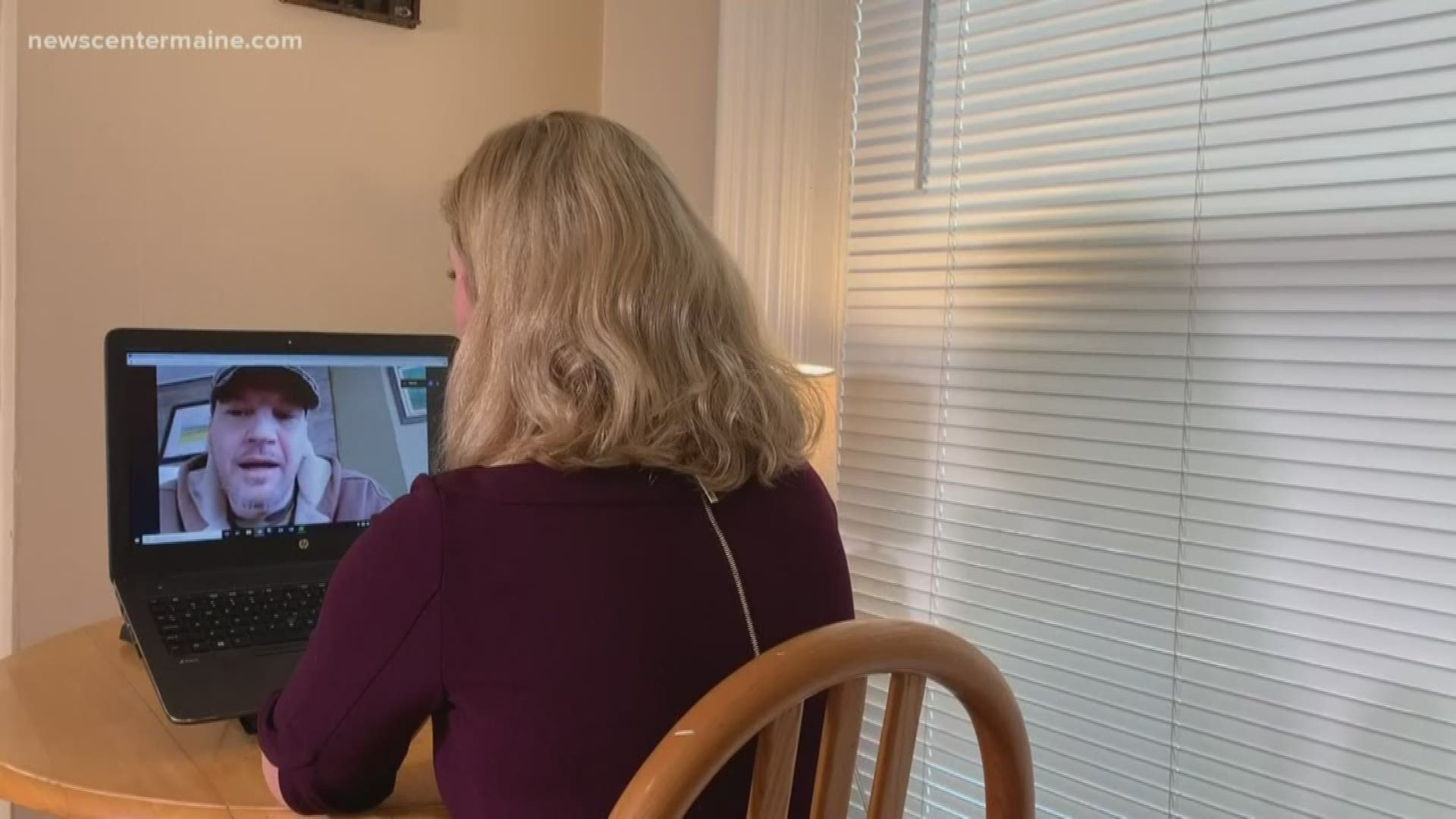BANGOR, Maine — For Scott Pardy and James Rickrode, life at the Fresh Start Sober Living houses they run in Bangor and Brewer looks a bit different these days.
"I think we can hold it together," Pardy told NEWS CENTER Maine via video call. "We're going to try, but it's certainly day by day."
The two men, who each struggled with substance abuse at a point in their lives, are learning to adapt to an unprecedented situation -- social distancing in the wake of the coronavirus. New requirements have put a halt to in-person support group meetings, so Pardy and Rickrode's men are relying more on their house members and tuning into online sessions when they can.
"Everybody's kind of really banded together," Rickrode explained. "We are like a little family in each house. Nobody is individual."
One of the most challenging parts, though, is helping people struggling with addiction see the light at the end of the tunnel. Rickrode noted that many of his men have outstanding court orders that COVID-19 has put on hold. The delay means that rewards of sobriety are temporarily at a standstill.
"(The men are) looking forward to getting visits with their children, or getting visitation rights back, or getting their driver's license back."
Even if men already have those visitation rights, options to see wives, or girlfriends, or kids are limited at the Fresh Start houses for health purposes, making feelings of isolation very real.
Since substance abuse and isolation often go in hand, this is a stark reality for recovery organizations. Suzanne Farley, the executive director of Wellspring in Bangor, says it's just as important as ever to make sure people in recovery have access to the resources they need.
"When somebody starts treatment, you don't want to cut them off abruptly, no more than you would if somebody was getting a medical treatment for a particular diagnosis that they had," Farley told NEWS CENTER Maine over the phone.
Other organizations like the Bangor Area Recovery Network have also begun to adapt, offering daily Zoom sessions for people who want to call in or join on webcam. There is also a support number people can call (207-478-9486) to be connected with peers that can help them.
"We have a tendency, especially during times of fear, to default into old behaviors that used to serve us well at one point," Jessica Jesiolowski, the community outreach specialist for BARN, explained.
Experts all stress the importance of reaching out in some way in you feel alone.
"We're really seeing the recovery community dig deep and come together to stay connected because we all know how important that is," Jesiolowski added.
If you or someone you know need help, there are resources you can reach to to start. Experts recommend:
- 211 Maine by calling "211", texting your zip code to 898-211, or emailing info@211Maine.org
- Office of Behavioral Health by visiting options on its website
- MaineCare by dialing the Alcoholics Anonymous hotline at 1-800-737-6237, the Narcotics Anonymous hotline at 1-800-974-0062, or researching other hotlines
--
At NEWS CENTER Maine, we’re focusing our news coverage on the facts and not the fear around the illness. To see our full coverage, visit our coronavirus section, here: www.newscentermaine.com/coronavirus.

